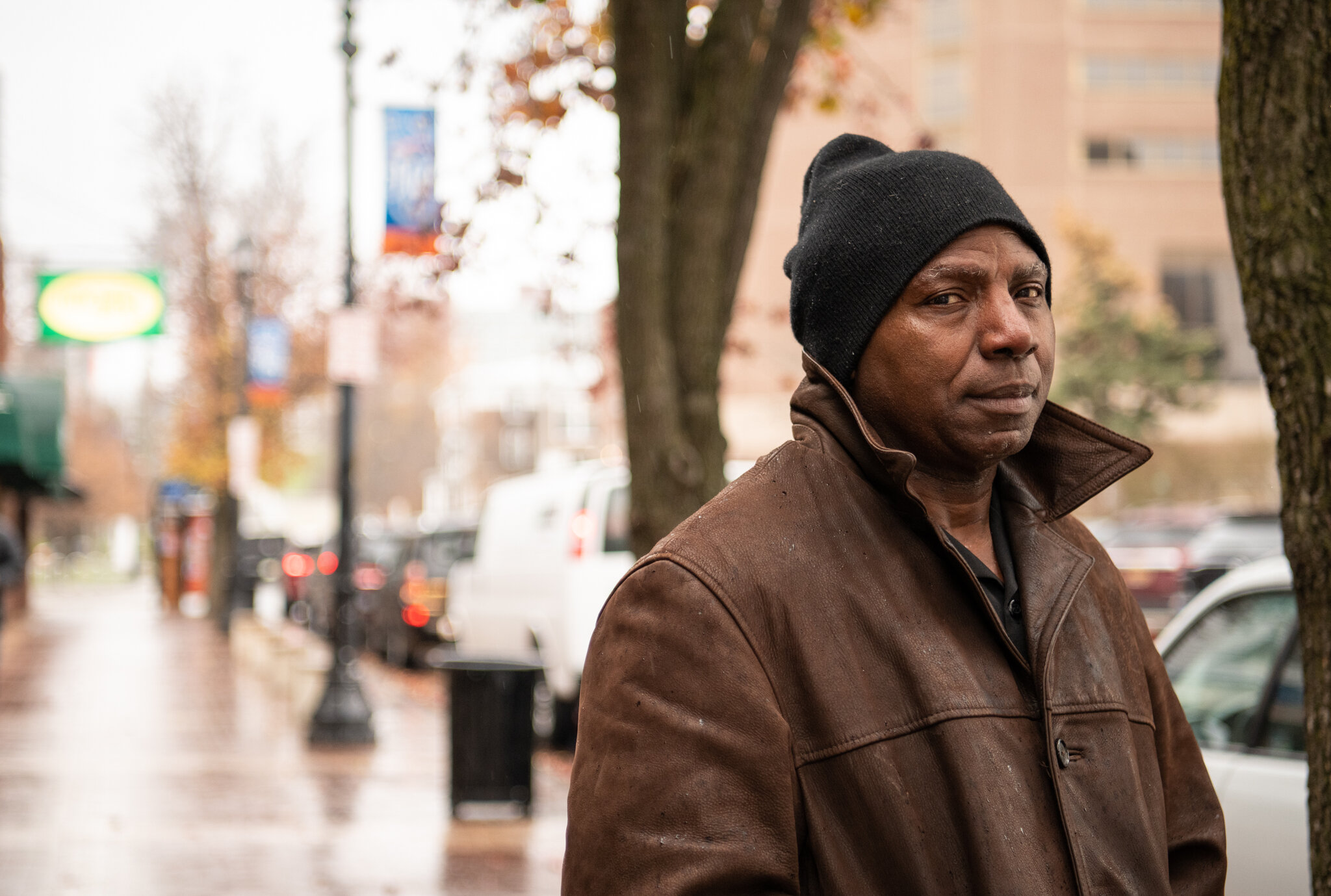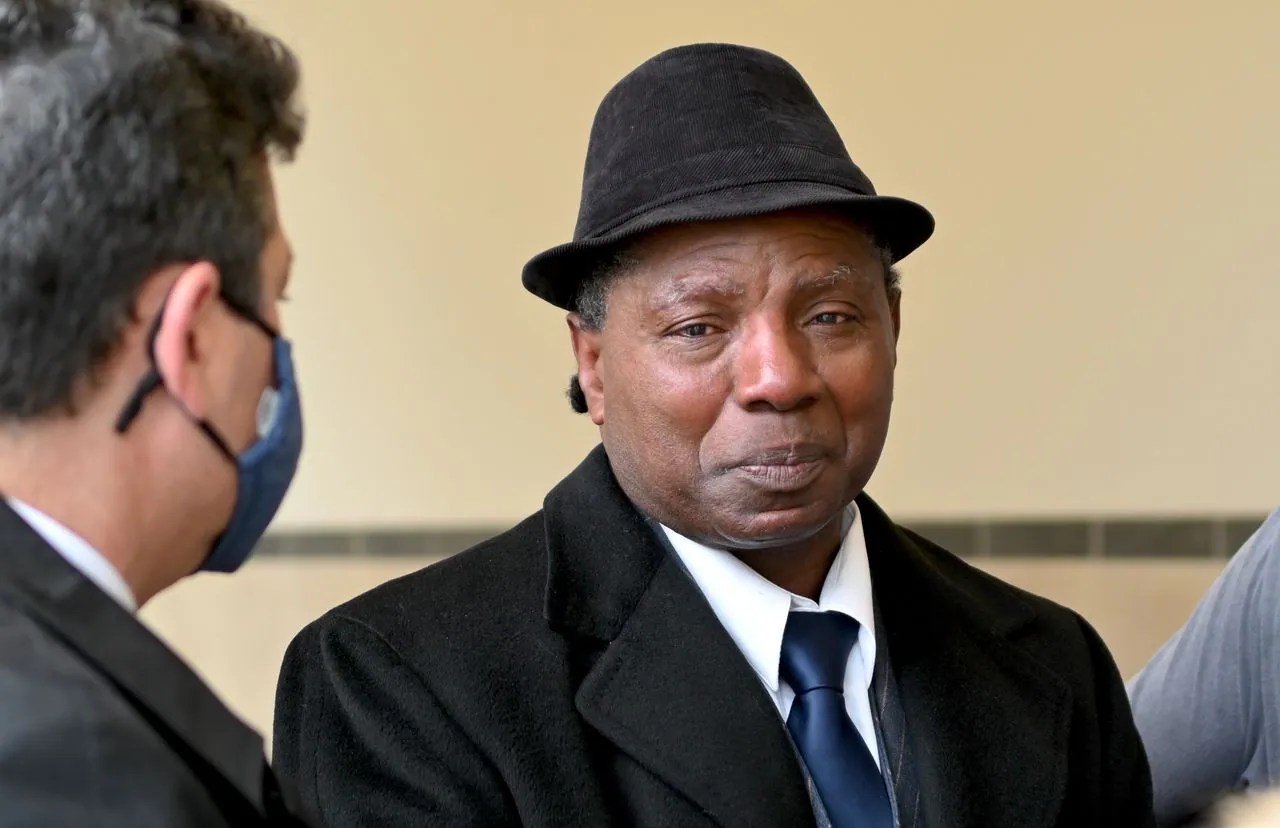The Journey From Wrongful Conviction To Redemption
Anthony Broadwater is a name that has recently gained significant attention due to the harrowing story of wrongful conviction and his remarkable journey towards redemption. In a world where justice is often portrayed as infallible, Broadwater's case serves as a poignant reminder of the flaws within the legal system. This article delves deep into his life, the events that led to his conviction, the subsequent fight for exoneration, and the broader implications for justice reform.
In this exploration, we will examine the intricacies of Broadwater's case, including the societal and legal ramifications of wrongful convictions. The narrative not only sheds light on the personal toll on Broadwater and his family but also emphasizes the urgent need for reform in how the justice system handles cases involving race, eyewitness testimony, and forensic evidence.
As we navigate through the details of Anthony Broadwater's life, we aim to provide a comprehensive understanding of his experiences and the lessons that can be learned from them. This journey is not just about one man's fight for justice; it reflects a larger movement towards ensuring that no one else suffers the same fate.
Table of Contents
Biography of Anthony Broadwater
Anthony Broadwater was born on February 12, 1951, in Syracuse, New York. His early years were marked by a blend of challenges and triumphs that would shape his character. He grew up in a predominantly African American neighborhood, where he faced the realities of racial discrimination.
| Personal Information | Details |
|---|---|
| Full Name | Anthony Broadwater |
| Date of Birth | February 12, 1951 |
| Place of Birth | Syracuse, New York |
| Occupation | Formerly incarcerated; activist |
Early Life and Background
Growing up in Syracuse, Anthony faced numerous obstacles that were compounded by systemic racism. However, he was also surrounded by a supportive community that helped him navigate his formative years. He was known for his athletic abilities and had aspirations of pursuing a career that would allow him to contribute positively to society.
The Case: A Turn of Events
In 1984, Anthony Broadwater was wrongfully accused of raping a woman in Syracuse. The case was largely built on flawed eyewitness testimony and the use of unreliable forensic evidence. Despite the lack of concrete proof linking him to the crime, he was convicted and sentenced to 25 years to life in prison.
The Trial and Conviction
The trial was marred by numerous irregularities, including the reliance on a single eyewitness who later recanted her testimony. The prosecution's case was further weakened by a lack of physical evidence. Despite these glaring issues, Broadwater was found guilty, highlighting serious flaws in the judicial process.
Conviction and Its Consequences
The impact of Broadwater's wrongful conviction extended far beyond his incarceration. He faced immense challenges while in prison, including stigma, isolation, and the psychological toll of knowing he was innocent. His family also suffered greatly, as they struggled to maintain their lives while fighting for his exoneration.
Life in Prison
Throughout his time in prison, Broadwater maintained his innocence, engaging in various activities aimed at improving himself and advocating for justice reform. He became involved in educational programs and sought to support fellow inmates who faced similar challenges.
The Fight for Exoneration
After spending 16 years behind bars, Anthony Broadwater's case began to gain attention in the late 1990s. A new wave of forensic science and a growing awareness of wrongful convictions began to shed light on his situation. In 2021, the Onondaga County District Attorney's Office took another look at Broadwater's case and ultimately decided to vacate his conviction.
Key Developments Leading to Exoneration
- Advancements in DNA testing that were unavailable at the time of his trial.
- Increased awareness and advocacy for wrongful conviction cases.
- Support from legal experts and organizations dedicated to justice reform.
Impact on Society and Justice Reform
Broadwater's case has sparked conversations about the need for systemic reforms in the criminal justice system. His story serves as a powerful example of the consequences of wrongful convictions, particularly for marginalized communities. It has prompted discussions surrounding the reliability of eyewitness testimony and the importance of utilizing modern forensic techniques in criminal investigations.
Lessons Learned from Broadwater's Story
Anthony Broadwater's journey is a testament to the resilience of the human spirit and the pursuit of justice. His story teaches us several critical lessons:
- The importance of thorough investigations and the need for reliable evidence.
- The dangers of relying solely on eyewitness accounts.
- The necessity for ongoing education and training for law enforcement and legal professionals.
Conclusion
In conclusion, Anthony Broadwater's story is a powerful reminder of the flaws within the justice system and the urgent need for reform. His journey from wrongful conviction to exoneration highlights the importance of advocacy, education, and systemic change. As we reflect on his experiences, let us take action to support justice reform initiatives and ensure that no one else suffers the same fate. We encourage readers to share their thoughts in the comments and spread awareness about wrongful convictions.
Thank you for taking the time to learn about Anthony Broadwater and the critical issues surrounding wrongful convictions. We invite you to explore more articles on our site to stay informed and engaged with matters of justice and social reform.


:max_bytes(150000):strip_icc():focal(679x0:681x2)/broadwater-rosenbaum-1-2000-b73aac8ac72b4608a82c33c50a6c7b09.jpg)
ncG1vNJzZmivp6x7s7HBnqOrmZ6YtbjFzmeaqKVfpb%2BqucSbqZ6Zm567qH2OmqWtoJ%2Bjxm6u0aiYna%2BRqbKzesetpKU%3D